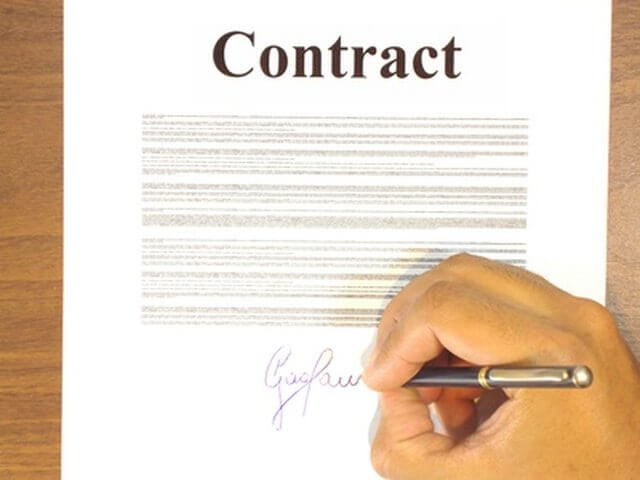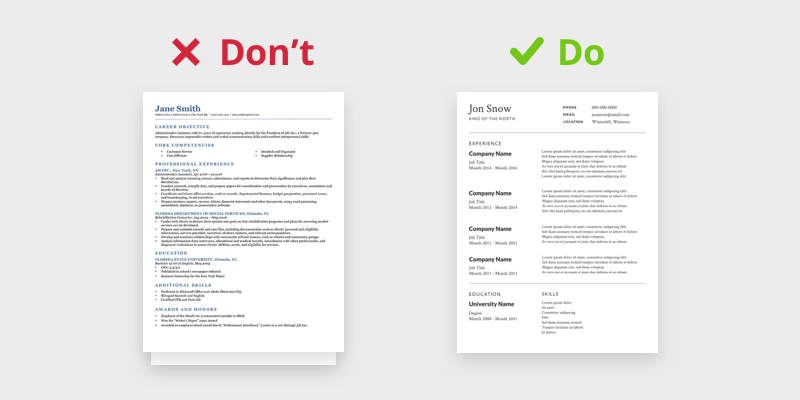So, you’ve done some short-term jobs in the past. Maybe you wanted to make a little extra, or you enjoyed the work. Regardless, what if we tell you the short-term work you did in the past could work for you today? What if you use it in your resume?
Now, we know some of you will debate over whether it’s a good thing to talk about short-term employment in your resume, but we’re here to be your guide. Not only will we be busting down the myth of putting contract work on a resume, but we’ll also discuss how to list contract work on resume document.
So, whether you’ve done some project freelance or during your career, here’s what you need to know about contract work and resumes.
What is Contract Work?
Before we go any further, let’s clearly talk about what we’re referring to in contract work so we’re all on the same page. Contract jobs are short-term employment. They differ from regular employment as a contract employee will have a specified time period to offer their services. The time of service may range either a few weeks, months, or years.
However, what makes it different from regular jobs is that the employer generally discusses the contract term before hiring. This ensures that both parties are well aware that the employee role will end at the contract-described time period.
Not to be confused with Freelance!
Sometimes, some individuals get confused between freelance and contract work. However, both are as different as night and day. Freelance employees generally work on their shifts and have more flexibility than contractors, while employers hire contract workers with responsibilities close to a full-time employee.
Why Should You Include Contract Work on Your Resume?

Now that you have a better understanding of contract work, let’s talk about the myth that surrounds contract work and resume.
The Myth Around Avoiding Contract Work in Your Resume:
Some people often hesitate while listing down contract work in their resume. One reason is that most contract work often spans around 3-4 months on average. The individual may believe that short-term employment could present them as unreliable or indecisive. Or it could present them as job hopping. It refers to when employees switch from one position to another in a relatively short time.
But in reality, it’s not true. Listing down your contract works can boost your career chances while finding your next job. Below are a few reasons why you should list down your contract work in your resume.
Reasons for Listing Contract Work:
1. Presents you Committed to Deadlines:
Listing down multiple contract works you’ve done in the past in your resume can suggest you as an individual committed to the deadline. It presents you as a person accustomed to tight schedules. Through it, you can discuss your time management skills.
2. Proves You’re Result Driven
Now, in addition to meeting deadlines, completed contract projects in the past can also indicate your focus on the project’s end goal. It presents that you work until the job’s done and ensures its success. This is a quality that most employers look for in an employee. So, learning how to list contract work on your resume is crucial.
3. Offers a Means to Talk About Transferable Skills
While you discuss your contract work, it can be a great place to talk about what you’ve gained from these experiences. It can help present the transferable skills you’ve learned and what you can bring to the company once they hire.
4. Presents you as Flexible:
As every contract job has different working hours, multiple projects can also present your flexibility and adaptability to work.
5. Can Minimize Employment Gap Impact:
Employment gaps can impact your resume. However, you can minimize the impact by listing down multiple contract jobs you’ve done in the past.
How to List Contract Work on a Resume?
Now that you know the benefits of listing your contract job, let’s move on to the “How.” Here are some great ways that can help:
Reverse Chronological Format:
This is a more traditional type of resume. In this resume type, you list down your work experience in reverse chronological order: latest at the top, followed by previous job, and so on. Here’s how to list down contract work:
- First, mention the staffing agency or its location, or simply write independent contractor under your work experience.
- Offer a brief overview of the responsibilities you had and the work you did during the contract.
- Use 3-4 bullet points to mention any accomplishments.
- Using the above points, discuss the position, proceed with it, and so on.
Functional Format:
If you don’t want to highlight your work experience and want to emphasize more on skills, then you could consider a functional resume. Here’s how to talk about your contract job in this resume type:
- Rather than focusing on a work experience section, this one will have a more prominent skill summary section.
- Think about the common skills you learned from each contract job.
- Use the skill as a heading and mention the most relevant achievements from each contract job.
- Then, in the work experience section, mention the staffing agency’s name and location.
If you still find it trivial, then consider partnering up with a professional resume writer.
Final Words:
And with that, you’ve learned how to list down contract work in a resume. Although you might be hesitant to add short-term employment in your resume document, they can prove as valuable tools. By using the steps provided, you can craft a compelling resume using your contract jobs in the past.
FAQs
What is Contract Work, and How Does it Differ From Full-Time Employment?
Contract work often involves a fixed time of employment., while full-time employers are a permanent part of the business. In addition, contract employees are most often not offered employment benefits as compared to full-time employees.
Should I Include All my Contract Work to Be Selective About It?
You should be selective and only highlight contract work that is relevant to the job posting.
Is It Necessary to Specify that I Was a Contractor on my Resume?
Yes, it’s crucial that you indicate that you were an independent contractor in the past to ensure there’s no confusion.
Is Freelance the Same as Contract Work?
No, freelance work differs from contract jobs as they have flexibility while working with their clients, while contractors have to follow specific guidelines that their client offers.

